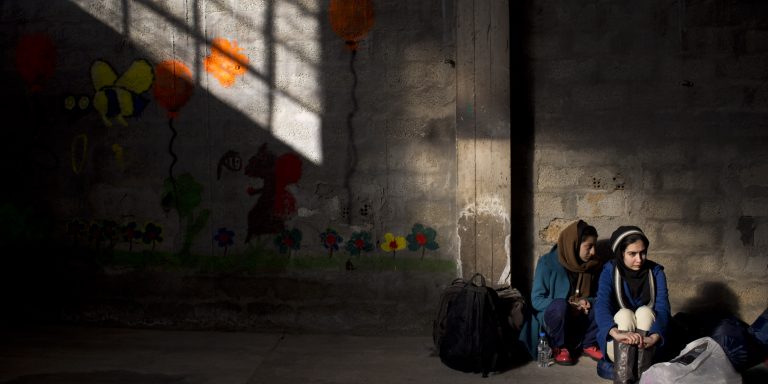INTELBRIEF
April 4, 2018
IntelBrief: The Unfathomable Scale of the Global Refugee Crisis

- On April 2 and 3, Israel announced, suspended, and then canceled a reported agreement with the United Nations on the fate of thousands of Sudanese and Eritrean migrants and refugees.
- Globally, from the United States to the European Union, the rhetoric around refugees has turned nativistic and nationalistic over the last several years.
- There are currently more than 65 million displaced people globally.
- The issue of refugees has faded from the headlines but the crisis still remains and is worsening globally.
.
There are few issues as ripe for exploitation by politicians than over the acceptance of refugees. Staggering numbers of people are trying to flee active conflicts, primarily from Syria, but also from Iraq and Afghanistan. Persistent ecological, political, and economic crises plague much of the world, especially in parts of Africa and Southeast Asia, leading to enormous numbers of desperate people looking for safety in an increasingly unwelcoming world. Many are migrants, while some qualify as refugees. The distinction matters; host nations must afford certain protections to those with refugee status.
Destination countries have seen huge influxes in refugee requests, with little agreement about how to judiciously and appropriately share the burden. The European Union has experienced internal tensions over the numbers of refugees to accept and whether policies should be roughly consistent within the bloc. In Israel, tens of thousands of primarily Sudanese and Eritrean migrants and refugees have created much domestic debate. On April 2, it appeared as if the Israeli government had finally reached an agreement with the United Nations over their refugee & migrant crisis. Prime Minister Netanyahu announced ‘an unprecedented agreement’ that would send perhaps as many as 16,000 migrants to unspecified Western nations, and Israel would accommodate the same number in-country, providing education and employment opportunities. The backlash within Israel was evidently more than Netanyahu expected because within hours the government said it was suspending the agreement, followed by an announcement that it was canceling it altogether.
Israel is far from unique when it comes to an inability to sufficiently address what is truly a global crisis. Japan, for example, contributes large sums of money to help address emergency needs for refugees but accepts essentially none into the country. As UN High Commissioner for Refugees Filippo Grandi stated during an April 1 interview with CBS News, countries need to do more to help, but that it is the ‘sovereign duty of any country’ to ‘ensure that population movements, including refugees, do not bring insecurity.’
The issue of refugees might have faded from the headlines compared to 2015-2016, at the peak of the Syrian refugee crisis, but the factors contributing to the phenomenon of unprecedented movements of people are worsening globally. In the U.S., the refugee issue is used as a domestic political weapon: President Trump has warned of ‘caravans’ of people threatening to flood into the U.S. The U.S. has lowered the number of refugees it accepts to 45,000 per year, and while the newly signed U.S. budget kept funding for Migration and Refugee Assistance at $3.06 billion, the Trump administration has been very open about its intention to cut refugee-related funding and to further restrict the numbers of refugees accepted into the U.S.
.
For tailored research and analysis, please contact: info@thesoufancenter.org
[video width="960" height="540" mp4="https://thesoufancenter.org/wp-content/uploads/2018/04/Final-Edit-1-165.mp4" poster="https://thesoufancenter.org/wp-content/uploads/2018/04/AP_552743459132.jpg"][/video]